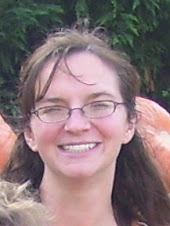I'm having a chat with my very good friend and crit partner Teresa Frohock on for an interview late next week. Teresa is the author of "Miserere" by Nightshade Books, which was released July 1st. You may have seen a review of Miserere on Tor!I'll be happy to ask her your questions if there's anything you'd like to know. She's a smart lady and so is her agent, Weronika Janczuk of Lynn Franklin Associates, so ask away.
Now, a few more nuggets from Dave Farland, as promised. You guys are all getting his Daily Kick, right? And you know about http://www.authoradvisory.blogspot.com/, where Dave hosts author interviews via conference call (Elana Johnson, Gail Carringer and Lisa Mangum, an editor at Deseret Books, are recent guests. The archived calls are available as MP3s)
And at http://www.davefarland.com/, you can join a writer's group based on genre and experience.
Dave looks at things a little differently. He really didn't talk much about the mechanics of writing, instead focusing on how the story incites emotion and audience analysis. Good stuff.
From my notes-
• Think about story as an exercise in stress induction/reduction. Put the reader thru hell then pull them back out safely. Writer is the sadist, reader is masochist. Reader has to feel it’s safe stress. You can’t touch the reader too deeply. (ie- He had a friend who read a book about a broken romance, but woman had real life situation, and couldn’t finish reading it.)
• All of us have some things that we can’t handle/too close to home. Conflict too big.
• Some conflicts are too small. Ie- poor little rich kid doesn’t interest him.
• Female writers will sometimes have hero get in an argument and feel bad. Not enough conflict for him. "Feelings hurt" may not be enough conflict.
• You can’t write a story that everyone will like.
• You HAVE TO take your story to a successful conclusion. Slice of life isn’t satisfying. No ambiguous ending! Ie- Inception. He hated it!
• Writing about evil is not the same thing as being a proponent of evil.
• Don’t critique the author, crit the work.
• Ask yourself- How am I different from the other writers in my genre, how am I similar?
• Often a reader will find experiences read in a book more important than real life. Stories are that important.
Okay, that's a cut and paste from my notes, all things Dave talked about in a half hour or so of class.The last point there really made me think- Dave said there were many times in his life that he ONLY remembers in relation to what book he was reading. True for me- I remember reading "Fire" and "Dragonfly" last year at the beach, but not what we ate or if the kids got sunburnt. Is it true for you? Don't forget to leave a question for Teresa. Let's make her work!
Flog a Pro: Would You Turn the First Page of this Bestseller?
-
Email readers, heads up! For the full effect, pause after the excerpt and
decide: Would you turn the page? Vote and then scroll for the reveal!
Trained b...
10 hours ago



Great tips from David, Kelly! My favorite one is that we often remember the book we reading while on vacation.
ReplyDeleteQuestion for Teresa: Do you have a specific word count to write every day?